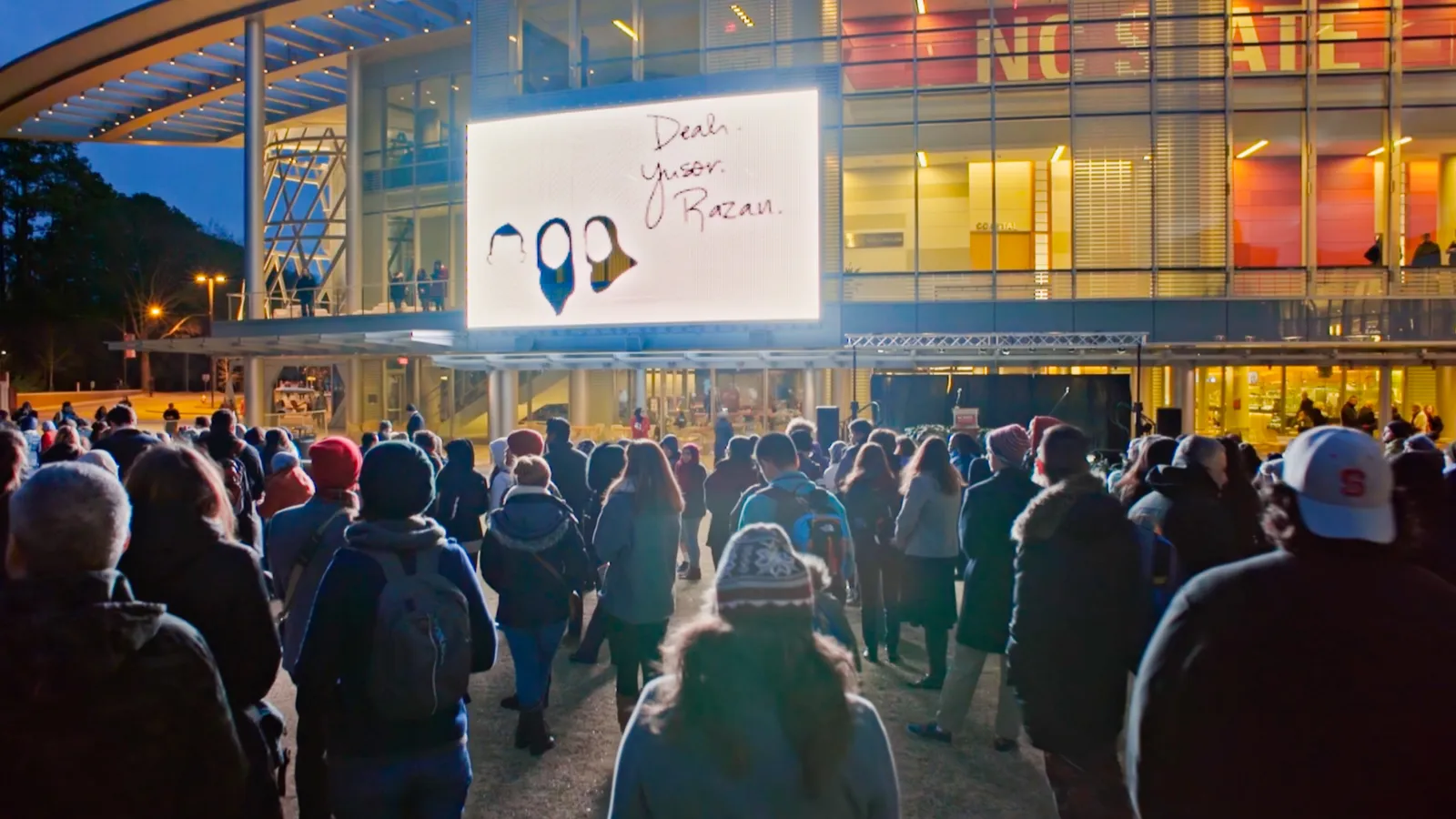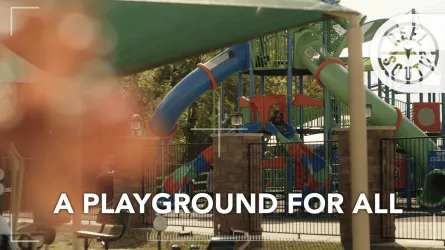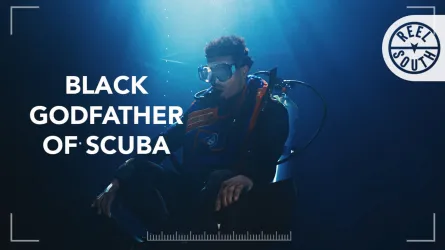In North Carolina in 2015, three Muslim-American college students were murdered by their neighbor. The first film in our Season 10 is "36 Seconds: Portrait of a Hate Crime," which shows the three victims' families' fight for justice against their murderer. Filmmaker Tarek Albaba connected with Reel South digital producer Heather Nunerley to speak about the film. Watch "36 Seconds" on all streaming PBS platforms today or here.
This interview has been condensed and edited before publication.
Heather: What did you learn about the power of community advocacy from the families in 36 Seconds?
Tarek: I learned very quickly that the Barakat and Abu-Salha families were actively involved in their community, their children's education, and helping those in need. When this tragedy happened, the community rallied behind them instantly. This was a case study proving that there is real power behind a united front and fighting to reclaim the narrative.
Heather: How can we better address the systemic issues that allow hate crimes to persist?
Tarek: When you see or hear a hate crime, do something in the moment. Record it, report it, and physically stop it from happening. We cannot wait around for bills to be passed or law enforcement to show up. We need to send the message that we will not stand for or tolerate hate in this country. People have the right to free speech, but I don't think they have a right to make us feel unsafe and marginalized. Remember, we have strength in numbers. There are far more people who respect and love their fellow community members regardless of their differences.
Heather: How did the film challenge your understanding of how we define and respond to hate crimes?
Tarek: I did not understand the nuance between federal and state hate crime laws. I was unaware of the high bar attorneys had to meet to prosecute hate crimes. Working on this film forced me to dig into our history to better understand why federal hate crime laws were created in the first place, the context of the times, and why hate crimes are so underreported. There is still a ton of work to do, and I do believe there is tremendous value in classifying/prosecuting relevant cases as a hate crime. To fix these systemic issues, we need to acknowledge that they exist.
Heather: Were there any moments during filming that you wished you had captured but didn't for whatever reason? If so, what was the situation?
Tarek: It would have been great to film the early interactions between the families and their legal representation. They also met with the FBI after they had gone through all the available evidence. I was not on the ground in NC filming at that time. Even if I was, since it was an ongoing investigation, there is no way I would have been allowed to capture the footage I wanted. At the end of the day, we were very pleased with the access the families gave us, and we had over 90 hours of compelling footage to work with.
Heather: What do you hope the Reel South audience gathers from your film?
Tarek: The power of community, the painful ripple effects of a hate crime, and the fact is, this was not an isolated incident. Hate speech, hate crimes, and blatant racism are on the rise. I hope we can all learn from how Deah, Yusor, and Razan lived their lives. They were fun, peaceful, and woke up every day thinking of how they were going to help others. They were amazing humans, and their legacy lives on.
Heather: On a personal note, what is an update for you? Do you have anything you'd like to share or brag about?
Tarek: At the moment, we are far in development with a scripted film based on my grandparents' harrowing journey in 1948 Palestine. We also have a documentary series and another feature documentary in development. It is a challenging time to raise funds and navigate distribution, but I know that there is an audience out there for our projects. Our stories need to be told - now more than ever. We need institutional and community support to do our work. If anyone is interested to learn more about our projects, they can reach out to me on LinkedIn.
Category
Share


